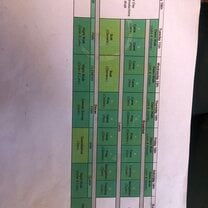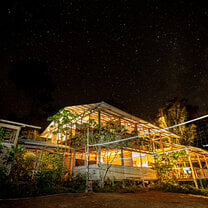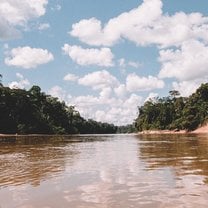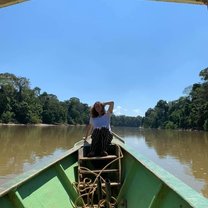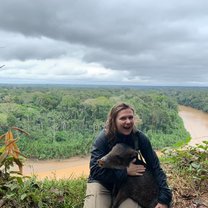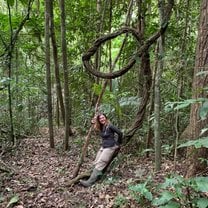My recent engagement with Hoja Nueva was intended to be an enlightening experience in learning about nature conservation, building connections, and contributing to meaningful work. Unfortunately, my time with the organization was damaged by deficient leadership, communication gaps, and several incidents that highlighted a lack of understanding and empathy.
Primarily, the owners seemed disinterested in the getting to know the paying volunteers and participants, creating an atmosphere that felt more like a disturbance than a welcome community.
Besides, they demonstrated a lack of communication skills, responding with bossiness and illogical refusals rather than treating participants as adults. This created an environment more reminiscent of a kindergarten than that of an organization focused on conservation and learning.
The summer camp program, initially promising, unfolded as a rigid school-like schedule. Opting out of any activity triggered subtle bullying and gossip (within earshot) from one of the owners, against those who sought quiet moments (like reading or watching the river) over constant participation.
Anecdotes shared among volunteers revealed widespread fear of one of the owners, even within her own team. It was evident that her leadership style fostered hierarchies, mood swings, and uncommunicated rules, including arbitrary control over electricity.
To name just a few, one of the owners's authoritarian and unprofessional behavior manifested in various situations:
Volleyball: During volleyball sessions one of the owners would be aggressive, exclude weaker players and show lack of sportsmanship. This not only created a competitive and unwelcoming atmosphere but also showcased her disregard for teamwork and preference for personal victories.
Gossiping and Subtle Bullying: Instead of addressing concerns directly, one of the owners resorted to talking behind peoples backs and making sarcastic comments.
Cup Incident: one of the owners would get angry over small things, such as someone mistakenly taking "her" cup.
Scratch in the Floor: During an incident where a volunteer attempted to rescue a cat, causing a scratch in the wooden floor, one of the owners reacted with anger rather than understanding.
These instances highlight a pattern of unprofessional behavior, demonstrating one of the owner's authoritarian leadership style and a tendency to handle situations with aggression rather than effective communication and understanding.
Interestingly, it was observed that the other owner seemed more relaxed and funnier whenever one of the owners was not around. This observation hinted at a notable shift in the organizational dynamics, with a more positive and enjoyable atmosphere emerging in the owner's absence.
There was a noticeable difference in how volunteers/participants and employees were treated. Volunteers and camp participants were eating in common areas, while employees stayed in the kitchen. Attempts to join employees in the kitchen were met with hostility, with no logical explanation provided (“because I say so”).
Adding to the complexity, the owners love for animals seemed to overshadow any consideration for the well-being of humans within the organization. This was particularly evident in the imposition of a specific lifestyle and diet on employees, regardless of their living arrangements and 24/7 availability, raising ethical concerns.
Furthermore, volunteers found themselves obligated (not invited) to participate in the ecology summer camp, even if their initial intention and payment were geared towards volunteer work rather than the camp. This unmet expectation added to the overall dissatisfaction and disillusionment experienced during my time at Hoja Nueva.
It is important to separate the actions of a few from the collective efforts of the entire team. The positive contributions made by employees and volunteers should be acknowledged, emphasizing their commitment to the organization's core values and objectives.
Additionally, it is worth noting that the activities provided, particularly during the summer camp, were engaging and intellectually stimulating for students interested in pursuing careers in biology, conservation and wildlife research.
Overall, I cannot recommend volunteering at Hoja Nueva nor participating in the Ecology Summer Camp, especially not for the price you’d have to pay (financially and psychologically).

